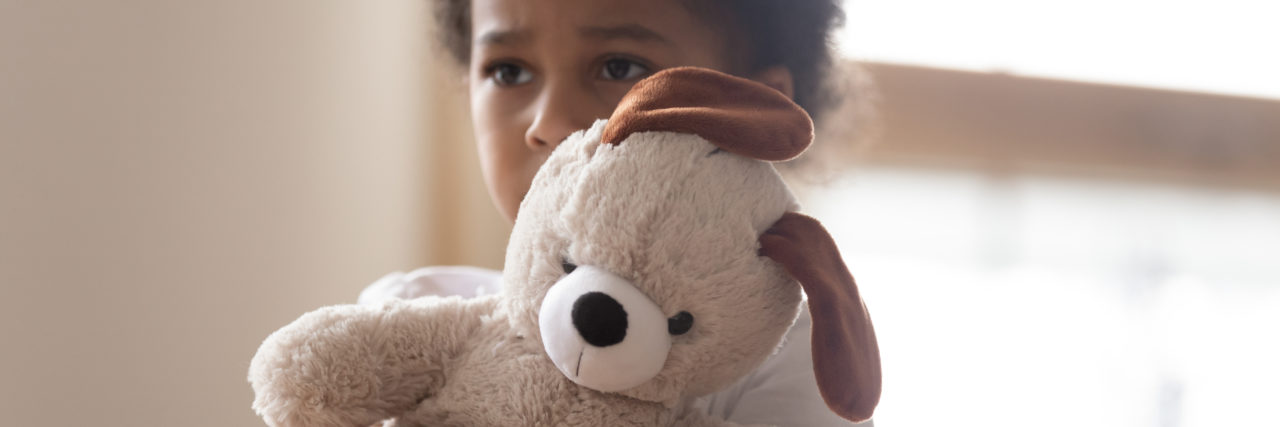When Trauma Doesn't Give You Thick Skin
Editor's Note
If you have experienced emotional abuse, the following post could be potentially triggering. You can contact the Crisis Text Line by texting “START” to 741741.
We’ve all heard the saying “What doesn’t kill you makes you stronger.” While it can be affirming for many, it also tends to establish a false narrative of what trauma survival looks like. There’s a societal belief that traumatic experiences make people cold, thick-skinned and hardened. However, in my personal experience and from talking with countless other people, trauma most often can leave us feeling vulnerable, sensitive and more afraid.
When we’re exposed to dangerous situations, the body’s stress response, also known as “fight or flight,” is activated. It’s an important mechanism built-in to our bodies, Unfortunately, if that stress response is activated too often, the body can trigger the response much more easily in the future, which can become a condition known as post-traumatic stress disorder (PTSD).
I was diagnosed with PTSD four years ago. Somewhere along the line, I internalized this idea that I should be untouchable as a trauma survivor. Being gaslit morphed the world around me. Because of the work I’d done reaffirming an accurate sense of reality for myself, I expected to have an unbridled sense of confidence in my own perceptions. However, that’s not what happened. Instead, I constantly doubted myself. I thought I’d be the kind of person who isn’t bothered by harsh words. After all, I experienced severe psychological abuse, which entailed constant verbal assaults. but I actually became more sensitive to the world around me. It was confusing and difficult. I was holding myself to an impossible standard of toughness solely because of how strong I’d been forced to be. It’s like I was covered in countless fresh wounds and then blamed myself when I winced at even the slightest touch.
In trauma recovery, we often reference the idea of an “inner child.” This is the part of a person that went through the abuse, the person who felt small and helpless. For survivors like me, this piece of my emotional self became frozen in time. After escaping my situation, even minor criticisms from others set off the same emotional alarms that the verbal assaults did. I cried more easily, constantly asked for reassurance from loved ones, and found myself overthinking every little thing people said to me. The abuse was no longer happening, but I felt just as unsafe. My body could no longer evaluate a threat’s severity so it reacted to everything like I was in danger. I even tried avoiding conflict altogether through intense people-pleasing.
I agreed with what everyone said. I apologized for everything I did. I wanted to protect myself from future harm by making myself as easy to love as possible, but over time. I became exhausted. I was walking on eggshells, the same behavior that once kept me safe, but this time, I was around close friends who would never think to hurt me. I eventually learned that I was allowed to just…be. I didn’t have to perform. I didn’t have to stress over what they thought of me. Learning to trust after being abused can feel impossible sometimes, but it’s not. Just because I was sensitive didn’t mean I couldn’t practice being vulnerable.
Self-care became a necessary facet of coping for me. The world (and the people in it) felt threatening, but I still had to navigate it, oftentimes feeling very alone. Emotional pain management is no easy feat, but medication, therapy and a strong support system made it easier. Slowly, I began to feel safer.
I am still an incredibly sensitive person, but I’ve made peace with that. My body will always remember how it felt to be abused, so it will always try to keep me safe from going through that again. I started to see this as a symbiotic relationship between me and my body. Now, I’m patient and gentle with myself. I’ve learned that it’s reasonable to be more sensitive after undergoing a life-threatening situation. My body is just trying to keep me safe, and even if I rationally know that I’m OK, a deeper part of me might not always understand that.
Being a survivor of trauma feels isolating, but there is an entire community of people who get it. The truth is, we cannot expect ourselves to instantly heal. Just as our bodies aims to keep us safe, we must learn to soothe our bodies in order to get through those waves of panic, anxiety and sadness. We are allowed to ask for help and we are allowed to feel. Vulnerability is normal after enduring the unthinkable. After all, we’re trauma survivors, not superheroes.
Lead image courtesy of Getty Images

